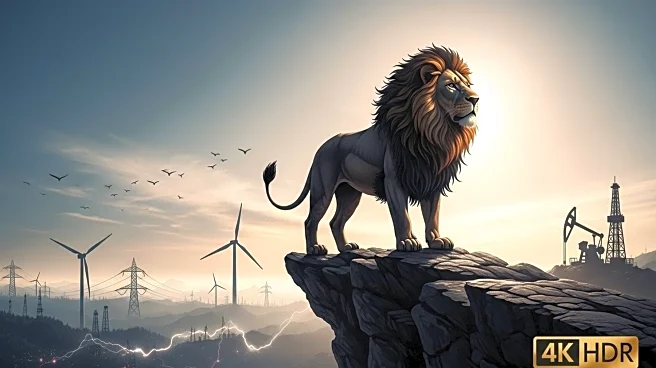What is the story about?
What's Happening?
President Trump has reversed his stance on Ukraine, advocating for the country's full territorial restoration after meeting with Ukrainian President Volodymyr Zelenskyy. He described Russia as a 'paper tiger,' citing fuel shortages and economic struggles. This shift follows Ukraine's successful deep-strike attacks on Russian refineries, impacting fuel supplies. Trump's support for Ukraine's territorial integrity marks a significant change from previous suggestions of concessions. The announcement has affected global energy markets, with defense stocks rising and energy prices fluctuating.
Why It's Important?
Trump's reversal on Ukraine has significant implications for U.S. foreign policy and global energy markets. By supporting Ukraine's territorial integrity, Trump strengthens U.S.-Ukraine relations and challenges Russia's position. The shift impacts energy markets, with European buyers seeking replacement diesel from other regions, affecting freight rates and ship supply. U.S. defense companies stand to benefit from increased European spending on American arms. The move also aligns with NATO's procurement strategy, potentially influencing future defense deals.
What's Next?
The U.S. may channel more European funds through American weapons manufacturers, bolstering defense industry growth. NATO's fund for Ukraine aims to reach $10 billion, supporting U.S. defense companies. Energy markets remain vulnerable to refinery strikes and sanctions, with potential impacts on fuel prices. The EU's sanctions package could further restrict Russian fuel exports, affecting shipping rates. Monitoring NATO's arms contracts and Europe's ammunition output will be crucial for investors.
Beyond the Headlines
Trump's 'paper tiger' comment highlights Russia's economic vulnerabilities but does not indicate collapse. Russia's military spending remains high, showing mobilization efforts. Sanctions require allied enforcement to be effective, with past attempts to curb Russian imports facing challenges. The geopolitical landscape remains complex, with potential risks and opportunities for energy and defense sectors.
















